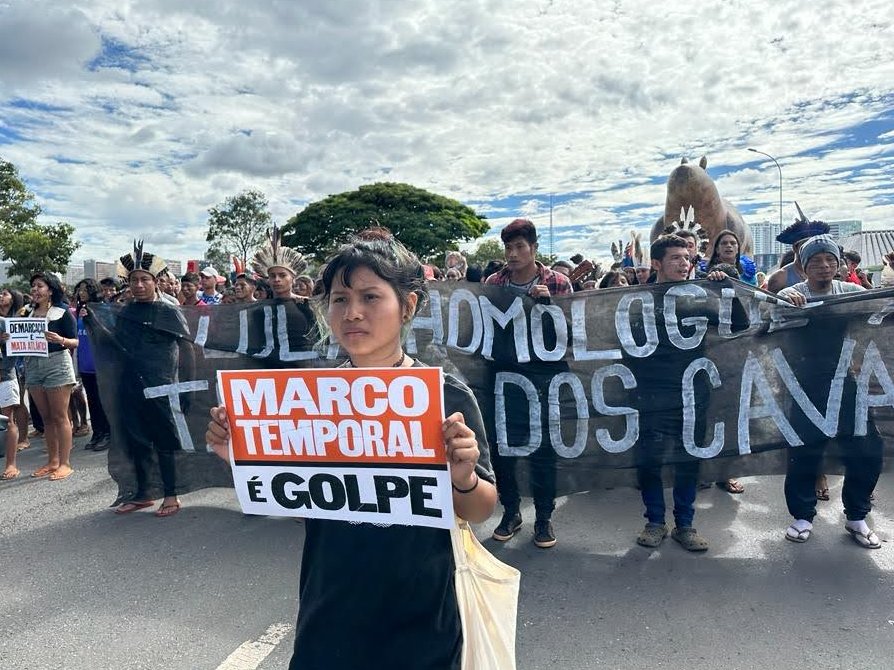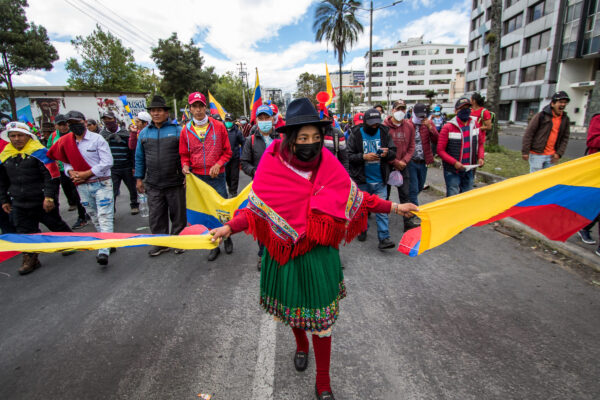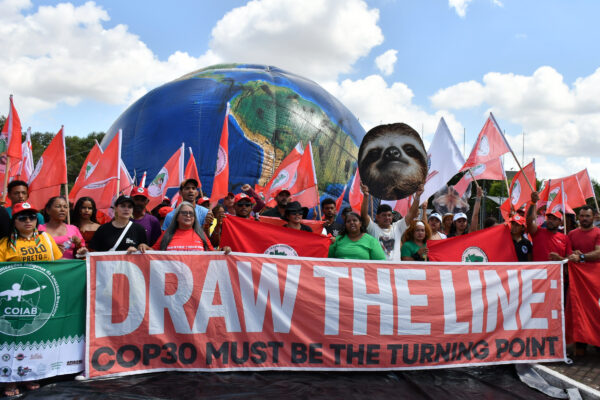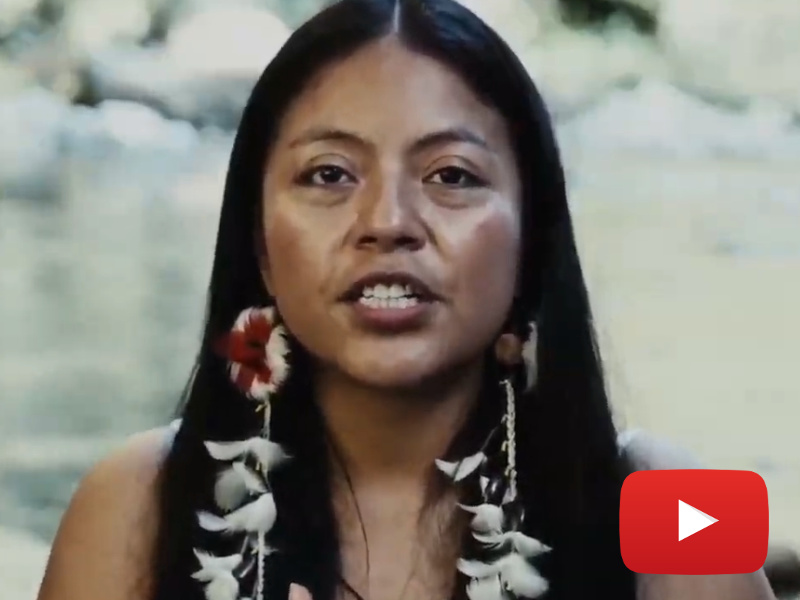2024 is poised to be a period of heightened mobilization and resistance for Brazil’s Indigenous peoples, as they continue to confront the controversial “Marco Temporal” (“Time Limit Trick”) legal thesis. This outrageous proposal claims that Indigenous peoples who were not present on their lands at the time of the promulgation of the Federal Constitution on October 5, 1988 are not entitled to the recognition of their traditionally-occupied lands.
The struggle against this retrograde legal interpretation, which poses an acute threat to the rights of Indigenous peoples, has unfolded in both Brazil’s Supreme Court and National Congress. To address this challenge, various stakeholders have stepped into the fray. Notably, the executive branch, particularly the Ministry of Indigenous Peoples and the National Foundation for Indigenous Peoples (FUNAI), have taken a stance. Additionally, the Indigenous movement, with the active participation of the Association of Indigenous Peoples of Brazil (APIB), has played a crucial role in various spheres.
Throughout the year, the Indigenous movement undertook vigorous advocacy actions, produced technical documents, and organized academic events focusing on the subject. Notably, there was a series of debates culminating in the production of the report Marco Temporal – Risks and Violations of Rights Associated with the Temporal Framework Thesis. This interdisciplinary analysis, encompassing law, economics, anthropology, and climate sciences, was conducted by APIB and partner organizations, with the support of Amazon Watch.
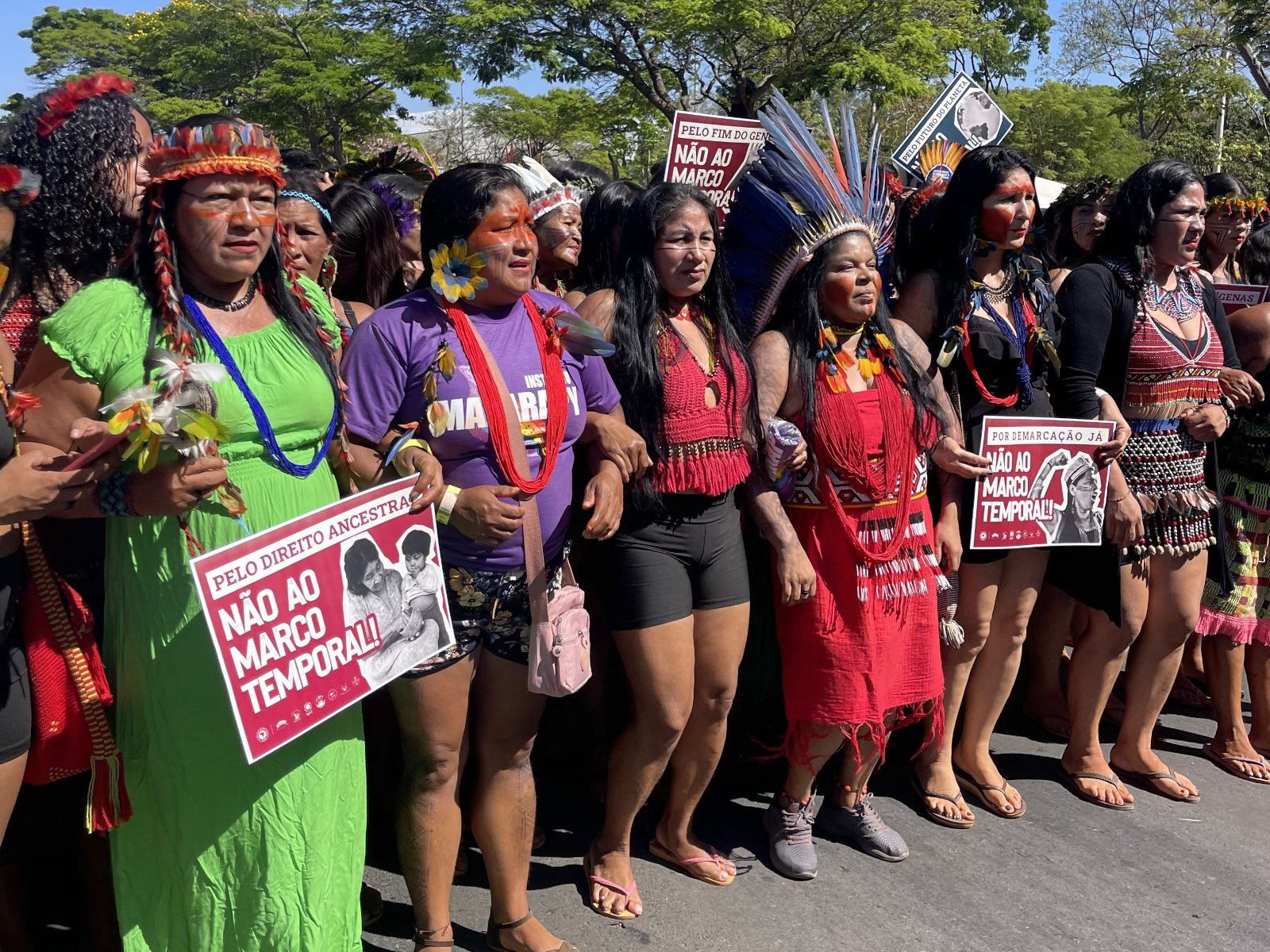
It is essential to emphasize the importance of resistance and mobilization in the streets. In addition to the Free Land Camp in April, the vote on the Marco Temporal thesis prompted APIB to call for two major mobilizations in Brasilia, along with actions across the country, spanning cities and Indigenous territories.
In September, after years of anticipation, the Supreme Court declared the Marco Temporal thesis unconstitutional. However, just a few days later, the National Congress passed Bill 2903, which not only revived the thesis but also included several other proposals blatantly harmful to the rights of Indigenous peoples. Fast-tracked by the powerful agribusiness caucus, the bill was approved and sent for presidential review. President Lula vetoed 47 provisions, yet on December 14, deputies and senators voted to overturn 41 of these vetoes, including the Marco Temporal provision. Among the vetoes that were upheld, the following stand out:
- Wherever the state can purportedly show that Indigenous peoples are no longer fulfilling their customs, their lands can be appropriated by the government.
- The relaxation of the policy of non-contact with Indigenous peoples in voluntary isolation.
- Authorizing the planting of transgenic crops in Indigenous territories.
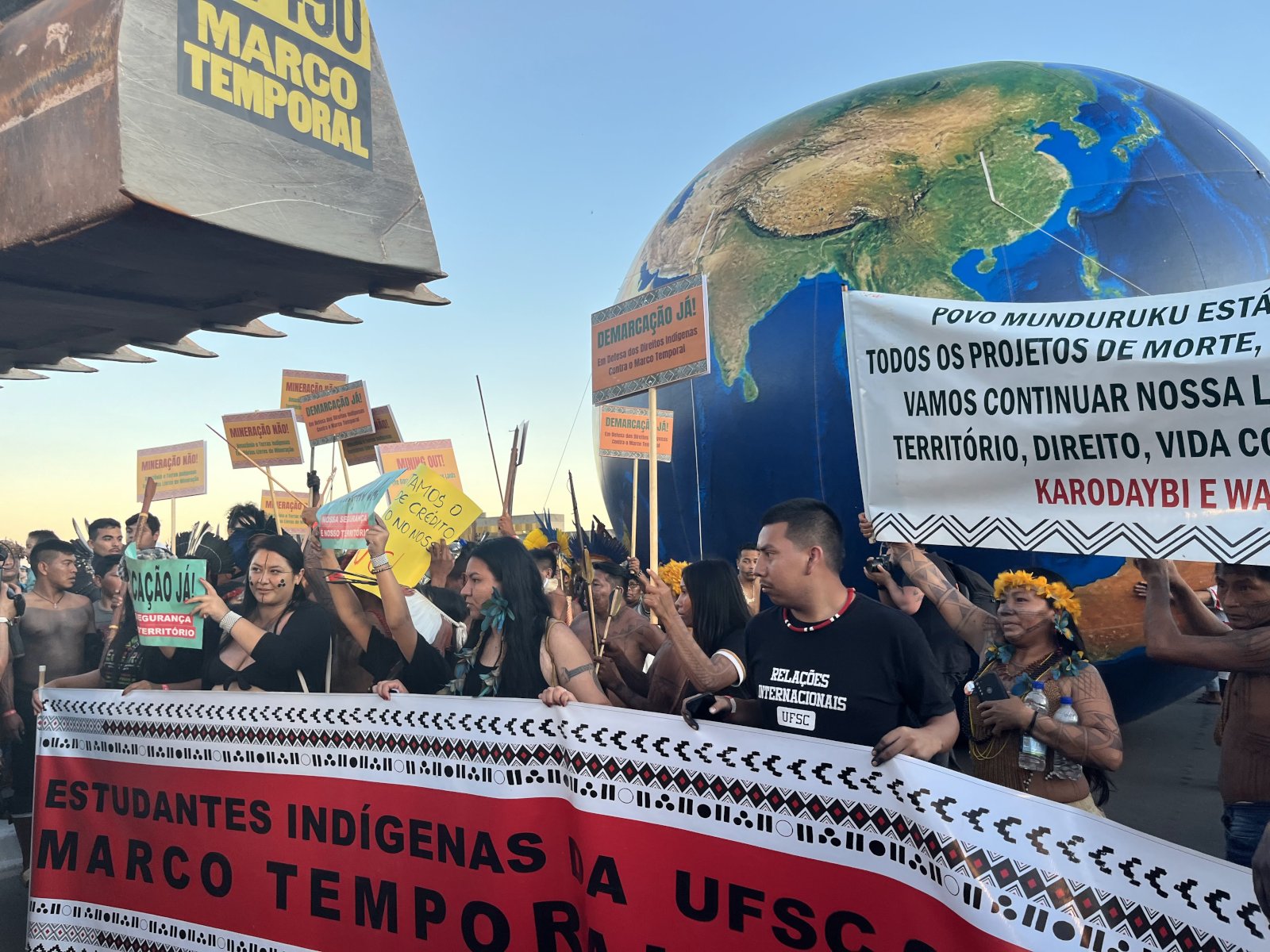
During her speech in Congress, Congresswoman Célia Xakriabá emphasized: “The overturning of these vetoes, which are so crucial, is not only a defeat for Brazil but for all of humanity.” She stressed that without the demarcation of Indigenous lands, there is no solution to the climate crisis. Finally, she closed her powerful speech by saying:
“I will not feel defeated. Defeated are those who are sitting on their hands. We will continue to fight for the demarcation of Indigenous lands. Because those who have territory have a place to go back to, and those who have a place to go back to, have a mother, a lap, and a cure.”
Indigenous peoples consider the impacts of Bill 2903, now Law 14.701/2023, to be a form of legislative genocide. As a symbolic act and a continuation of the ongoing resistance against the imposition of the Marco Temporal thesis, APIB will file a Direct Action of Unconstitutionality (ADI) in Brazil’s Supreme Court.
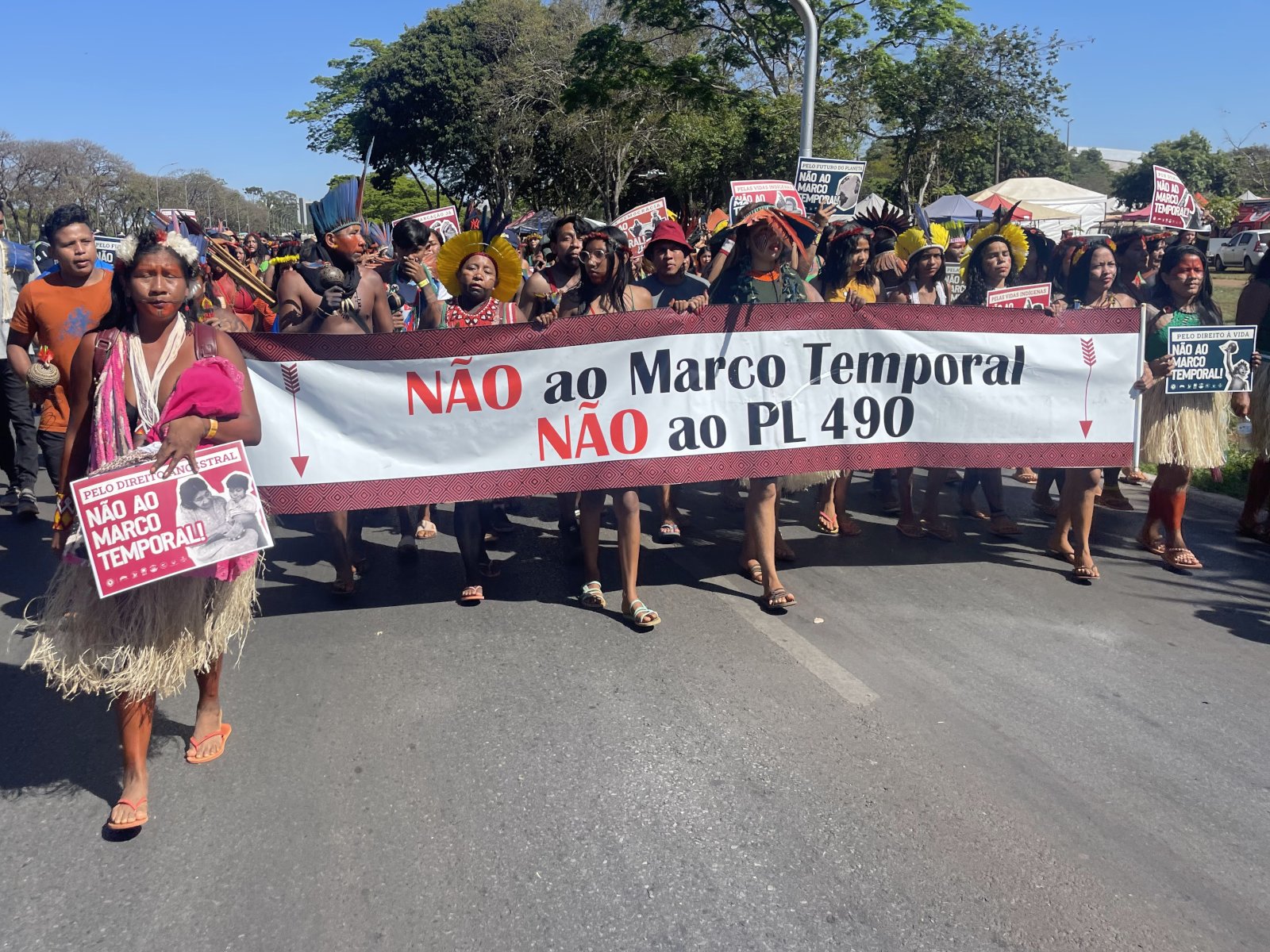
Unfortunately, the year 2023 will close without a guarantee of the fundamental territorial rights of Brazil’s Indigenous peoples, who for the time being, must contend with the reality of Marco Temporal. Despite this challenging scenario, we have confidence in the resistance and resilience of Brazil’s Indigenous peoples and their movement, who will persist in their fight against Marco Temporal and its congressional proponents by seeking recourse in the Supreme Court.
As APIB declares; “Defeated are those who don’t fight!” And Amazon Watch will continue to support this fight alongside our partners.


